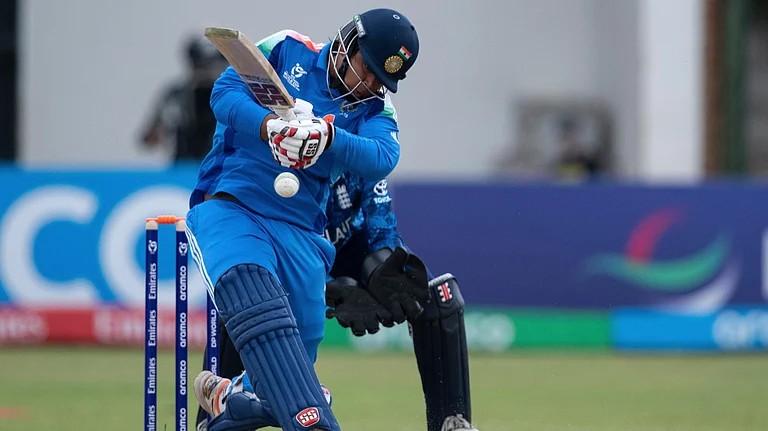Dr Asmus, who worked at a social-care centre in Berlin, first came to India with his wife way back in '81 as a tourist. One day, while strolling in Connaught Place he saw a few scabies-ridden destitutes writhing in pain. He immediately picked up some ointment from a medical shop and treated them. "It was a strange incident. There were scores of curious onlookers but no one lent a helping hand. It made me believe that the poor in this nation are rarely heard and seldom cared for," laments Dr Asmus. "It was then that I decided to stay back."
But that, unfortunately, was the start of what Asmus calls his nightmare. The Delhi Police arrested him and labelled him a paedophile and drug pedlar. He was locked up in Tihar jail for three months. But the police couldn't substantiate any of the charges and the court released him. The police however kept on arresting him from time to time. Till one day, Asmus called a Union minister who assured him of help. "But the damage had already been done. My wife left me as she felt I was getting into something which was absolutely unnecessary. And that too in a country where there was little respect for social workers," says Asmus.
But that didn't deter the German who came back to India in '85 and started seeking help from Indians and foreigners who frequented Connaught Place. He set up his roadside clinic with two bags of medicines he'd brought from Berlin. And then he had to win the trust of the destitutes frequenting the Hanuman Mandir complex in the area. "The mistrust was expected. For decades, they had not seen a soul helping them. And suddenly being treated by a foreigner was too tough for them to digest. Someone even asked me whether I was a cia agent," laughs Dr Asmus.
Today, Dr Asmus makes his daily rounds in the area meeting foreigners and seeking help. A few hours' effort is enough to raise money for the day's medicines and food. And thanks to his untiring efforts, a majority of the destitutes and street urchins frequenting this elite, expensive market in the Capital are free of illness. Young foreigners visiting Delhi often spend a few hours helping the ageing German doctor. Some go back and send medicines and clothes to the good doctor who supports himself on a pension from Berlin University and at night goes back to sleep in a tiny little room in East Delhi. "We only know him and come to him for help," says Salim, a leprosy patient who comes for a weekly dressing of his wounds at the roadside clinic. Ashok, a beggar treated by Dr Asmus when he and his sister were down with chicken pox, nods in agreement.
But why doesn't he seek help from local or international ngos? "Then the very purpose of my work would be defeated. I'm a simple man who loves India and wants to help the poor. I travel by cycle and bus. I don't have an organisation. News of our efforts has reached some European nations through word of mouth. I also write letters seeking help," says Dr Asmus even as he gets ready to examine the next set of patients waiting hopefully nearby.
Those willing to help Dr Asmus and his band of volunteers can visit the Coffee Home in Connaught Place, New Delhi, between 11 am-6 pm on any weekday or contact him at A/50, Kishan Kunj Extension, Laxmi Nagar, Delhi; phone (PP): 2429739.
























